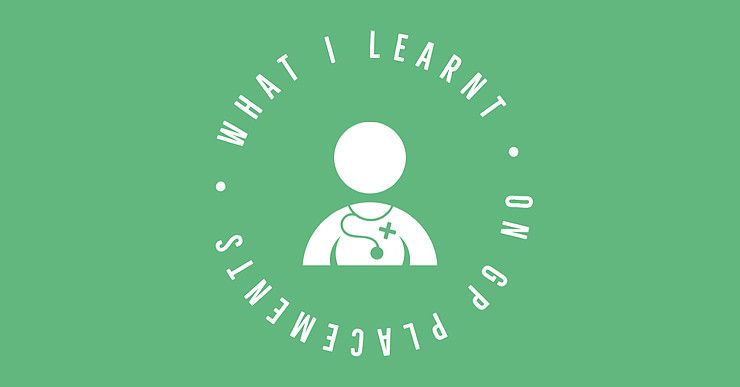When I was first applying to medical school and preparing for the all-dreaded interviews, there was one question that I kept circling back on to. “What do you know about the realities of the career that you are about to enter?”
Now of course knowing me, I had done a fair bit of research on medicine as a career. I did tons of work experience. I talked to other medics about it, scoured articles online and read books about doctors sharing their experiences.
Somehow, while I valued my experience and what it taught me about my future career, I always felt that I was on the sidelines. And while what I knew about healthcare was enough to convince my interviewers with a generic answer, I still came to medical school (excitedly) nervous and unsure of what to expect.
Over my first year at medical school, I got to spend some time at GP placement observing my supervisor and talking with patients about their ailments, and while it does share some similarities with my work experience, there were also some aspects of the job that were new to me:
1) It’s nothing like how Hollywood portrays it to be
From years of watching Grey’s Anatomy or The Good Doctor, I had this idealistic version of the healthcare system where super-humanisk people swoop in to save the day, all while wearing a perfectly ironed, spotless white coat.
While saving people’s lives does generally come under most healthcare workers job description, a lot of the time in between is also spent reviewing patient files, combing through paperwork and typing up patient notes.
Even though the later part of the job may not seem as heroic, it is important work that makes sure that the patient that comes into the hospital or GP practice is given the treatment that is the consistent with the most up-to-date information about them. And while it’s not nearly as exciting as imagined, it directly contributes to some of the most important decisions healthcare workers can make about someone’s health.
2) You will feel incredibly dumb…but eventually get better
In one of our first Community Based Medicine days, I sat in with a dermatologist for the better part of my day. Watching him fire off perfectly phrased and to-the- point questions at the patient, I couldn’t help but feel slightly nervous at the prospect taking similar histories that afternoon.
Later that day, I sat down with a patient with a chronic (read: life-long) illness to talk through their condition with them. As I stumbled through even the most basic of questions, and had uncomfortably long silences where I frantically searched for a question, I sighed in disappointment. That doctor had made it seem unimaginably easy, and I couldn’t even get through the first five minutes without making myself look like an idiot.
Over the next few weeks however, we worked through establishing patient rapport, and maintaining empathy as I took more patient histories. Eventually, I felt a lot more confident introducing myself to patients and asking them deeply personal questions about their lives and prognosis. Even though I wouldn’t call my patient skills superior by far, I am now content in the fact that I have somewhat improved and still need loads (I mean loads) more practice before I can call myself a competent doctor.
Eventually, It’s important to bear in mind that you are just at the beginning of what will become a life-long career. This is the part where you’ll learn and make embarrassing mistakes, and then have the rest of your career to aim for perfection.
3) The patient is so much more than their illness
When you enter medical school, you are bombarded with information from conditions marked by onset, symptoms, progression and prognosis and the like. With me, after having spent months committing this theoretical knowledge to memory, I was eager to go into placement and spot all my newly learnt symptoms in person.
What these lectures don’t prepare you for however, is that when a patient comes to you, they are their own person with feelings, likes, dislikes and opinions. Sometimes, they’ll be hesitant or ashamed to talk to you about their condition, other times they’ll find you a nuisance. And while it is hard for you to not get excited about seeing your first hernia in person, it’s also important to understand that there is a person attached to that disease, and it’s important to be sensitive to them as well.
4) It really is a team effort
Before coming to medical school, I had little to no idea of how much work is required in the background for every patient that walks in. What I saw before as just simply showing up to an appointment, I now see as reminders sent out days beforehand, doctors and nurses familiarizing themselves with the patient history and receptionists logging in patients visits.
Effective healthcare is really only effectively delivered when all of these people decide that they want to work together for the betterment of the people that come to them, and is something that I now greatly appreciate in these unprecedented times that we find ourselves in.
Finally, this is just a slice into what makes a healthcare system, through the eyes of a lowly first year. There’ll be many, small lessons about healthcare that you’ll learn everyday on the job, and that’s what’s makes this field so dynamic. Hope everyone starting university next year and beyond enjoys the GP placement as much as I did, and try to learn as much as you can from your experiences!
Words: Liaba Hassan
